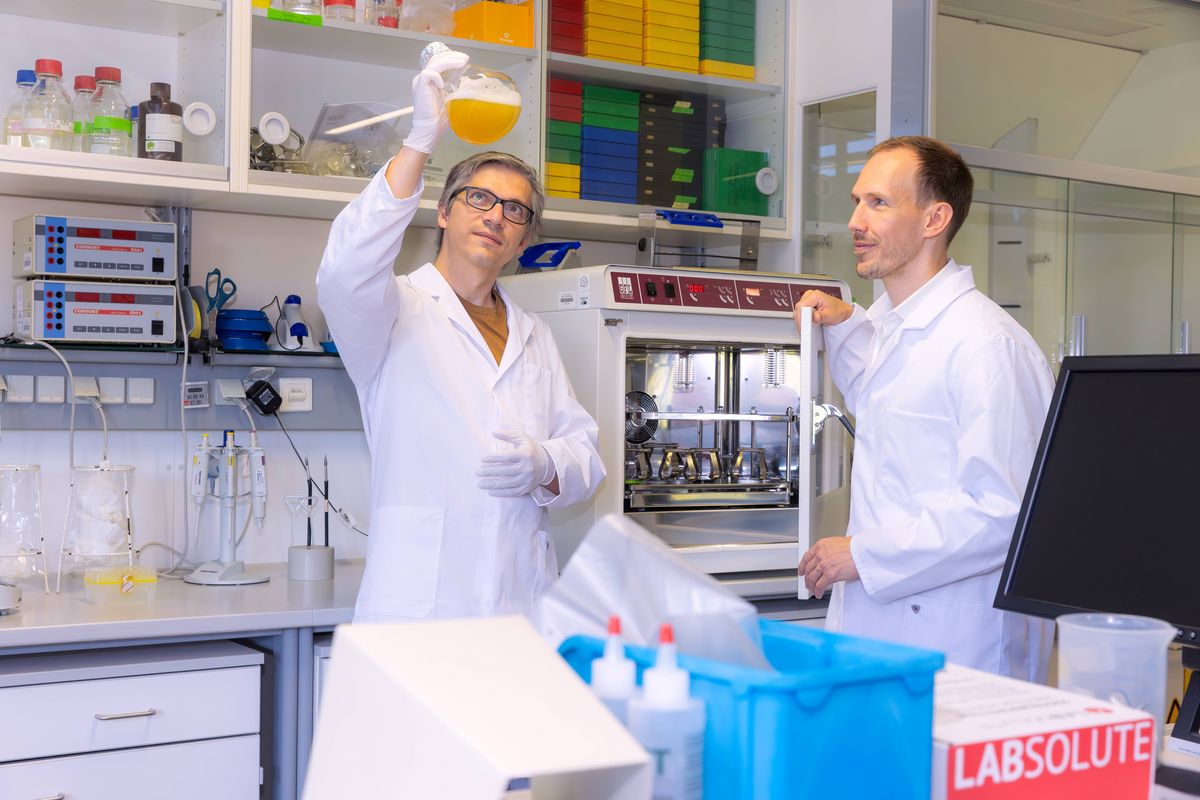In the lab rooms of researchers Dr Christian Sonnendecker and Dr Ronny Frank at the Centre for Biomedicine and Biotechnology (BBZ) on Deutscher Platz, a newly delivered large glass reactor with a capacity of 100 litres stands ready alongside lab equipment, waiting to be put into operation. In adjacent rooms, sacks of single-use PET plastic trays, previously used by supermarkets to sell fruit, are being stored ready for processing. The reactor will be used to break down the PET into its individual components at a temperature of 65 to 70 degrees Celsius by adding the enzyme PHL7 – all within 16 hours. This is a more efficient system that uses significantly less energy than previous methods, especially when compared to incineration, which releases environmentally harmful emissions.
The reactor currently under construction is significantly larger than the existing one. The volumes of PET involved are increasing, as this method is set to become commercially viable. In addition to the enzyme itself, a key innovation was a novel measuring technique developed by Dr Ronny Frank. “It allows enzymes to be improved more quickly, cost-effectively and based on data. It can generate large, reliable datasets – perfect for machine learning. This made it possible to significantly optimise the enzyme: it now works faster, more stably and more efficiently,” says Frank.
After their method attracted attention not only within the scientific community but also in the media, the question arose: “What do we do with this now? Let’s start a company!” Encouraged by a friend who had founded the start-up Glashaus 3D with the support of Leipzig University, and by the University’s SMILE start-up initiative, they took part in the Leipzig Start-up Night in 2022 – and won the audience award with their idea. “The public loves the story of the enzyme found in the cemetery that led to the discovery of our process,” says Ronny Frank. From that point on, the idea of founding a spin-off really began to take shape.
With the prize money and support from the University Foundation, the team purchased equipment to further develop their recycling process and investigate how to increase volumes and improve efficiency.





Comments
No comments found!